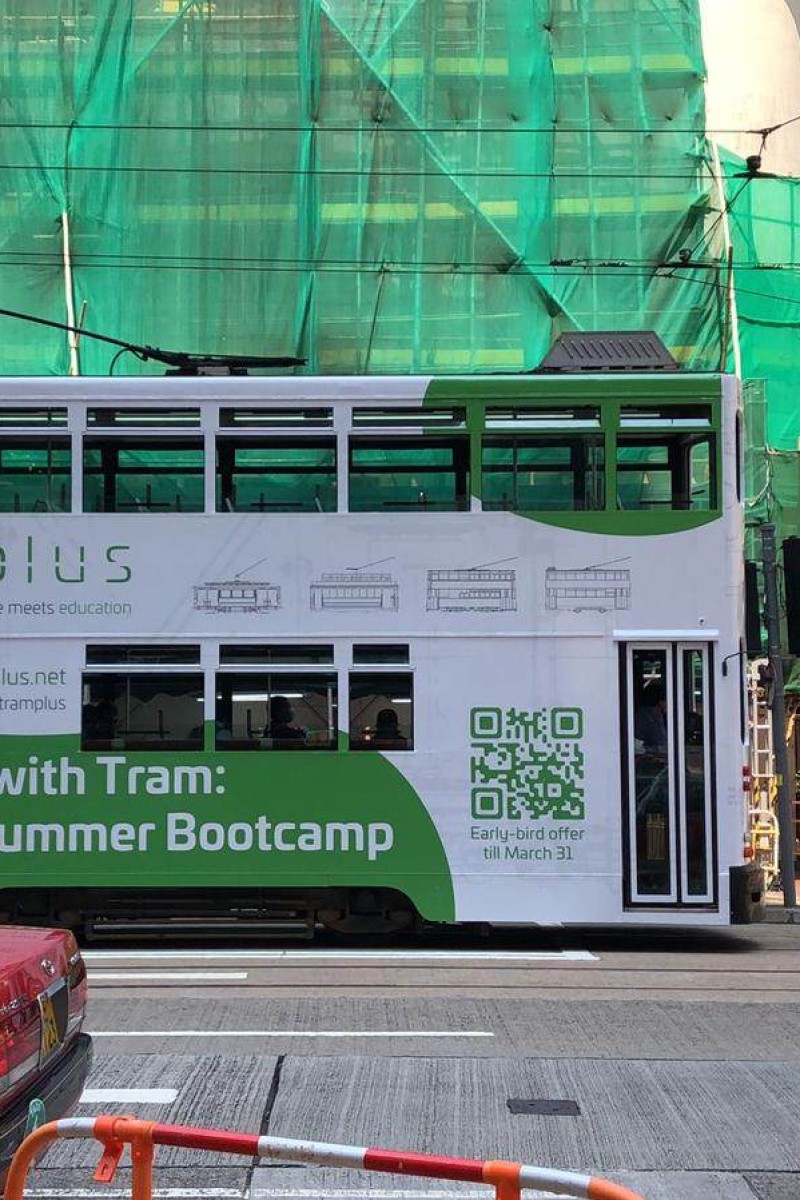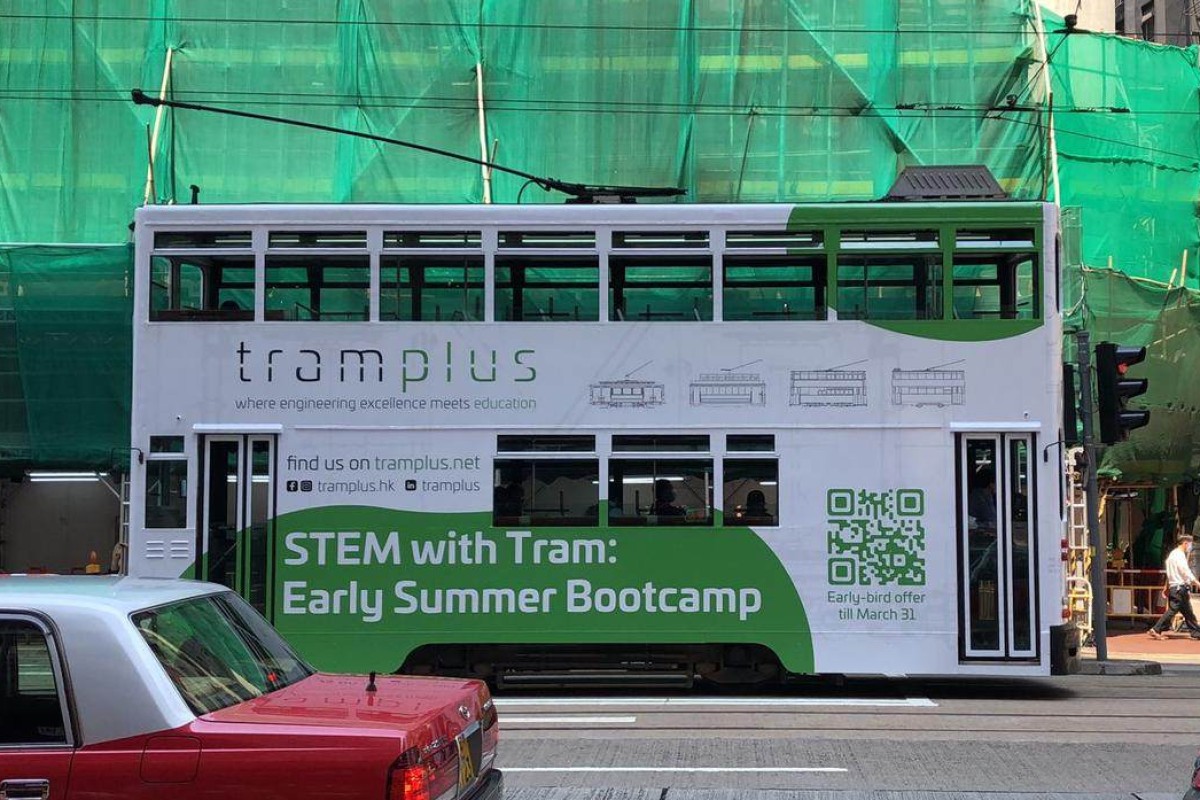
- Tramplus, the sister company of Hong Kong Tramways, is rolling out its first online course, called STEM with Tram, during the early summer holiday
- The education company is using the city’s historic public transport to create a hands-on, real-world approach for students
 Tramplus, a sister company of Hong Kong Tramways, is launching a camp to teach engineering, sustainability and coding using the city’s famous public transport. Photo: Handout
Tramplus, a sister company of Hong Kong Tramways, is launching a camp to teach engineering, sustainability and coding using the city’s famous public transport. Photo: HandoutHong Kong’s historic trams have stepped into the education sector with a new company that offers courses teaching STEM through tram technology.
Launched last week, Tramplus, a sister company of French-owned Hong Kong Tramways, hopes to use the city’s famous public transport to teach engineering, coding and sustainability with a hands-on, real-world approach.
“Students nowadays enjoy so many resources. What they are short of is the chance to link those concepts back to real life. But when you sit in the tram, everything you can see is STEM knowledge,” said Joseph Lin, education consultant for Tramplus.
For the early summer holiday, Tramplus has rolled out its first online course, called STEM with Tram: Early Summer Bootcamp. Students will learn about four themes: tram engineering; energy sustainability; app design; and the logic of self-driving cars with Scratch, a coding language from the Massachusetts Institute of Technology (MIT).
Affectionately called “Ding Ding” for the sound of their bells, the double-decker trams are one of Hong Kong’s oldest forms of public transport.
“[Having] survived almost 120 years in the fast-changing world, trams are inspiring because they challenge the course of history,” said Cyril Aubin, managing director at Hong Kong Tramways. “A smart city should be the right mix between heritage and technology.”
Educators create free classes for students amid early summer break
He added that “Ding Ding” showed both the legacy of traditional craftsmanship and the latest technology in public transport, and Tramplus would be a “new pillar of the education sector” to provide STEM education inspired by trams.
Lin gave an example of the applications of “Ding Ding” for material sciences and sustainability: because trams have no air con, their windows have a special coating that creates a cooling effect.
“We want to let students imagine the Hong Kong they want to live in. What does it look like? Is it feasible?” Lin explained.
Historian reveals the truth behind ghost stories on MTR’s Island line
With three different cohorts in April to choose from, the virtual programme totals 10 hours over four days.
Priced at HK$3,880 for those who register by March 31, the camp targets junior secondary school students (Form One to Three), who do not need prior coding experience to join. For Primary Four to Six pupils, the course requires them to have parental guidance and a knowledge of coding with Scratch.
The education company is working with the world’s best engineering universities to create even more programming for Hong Kong pupils in the future.
